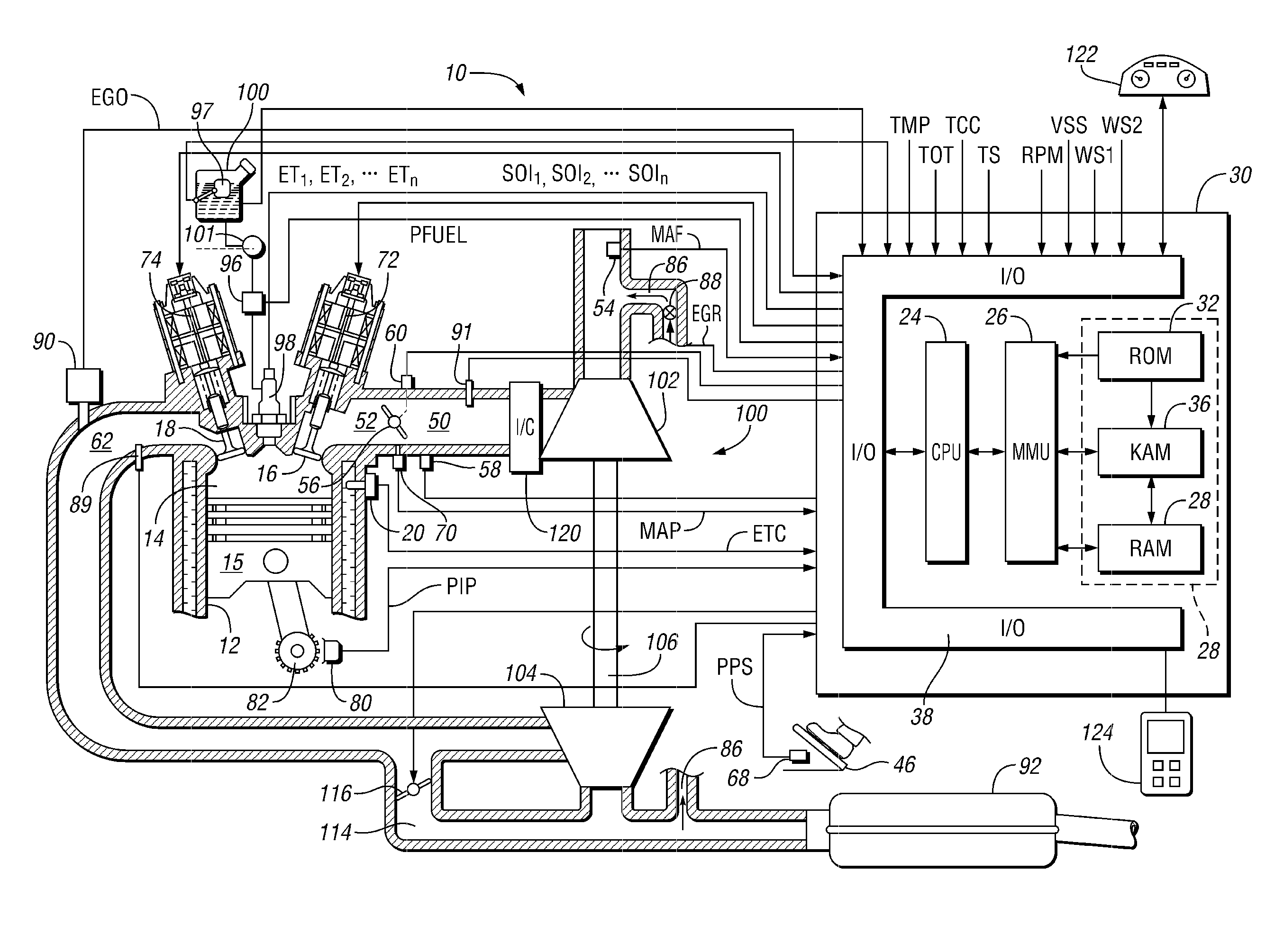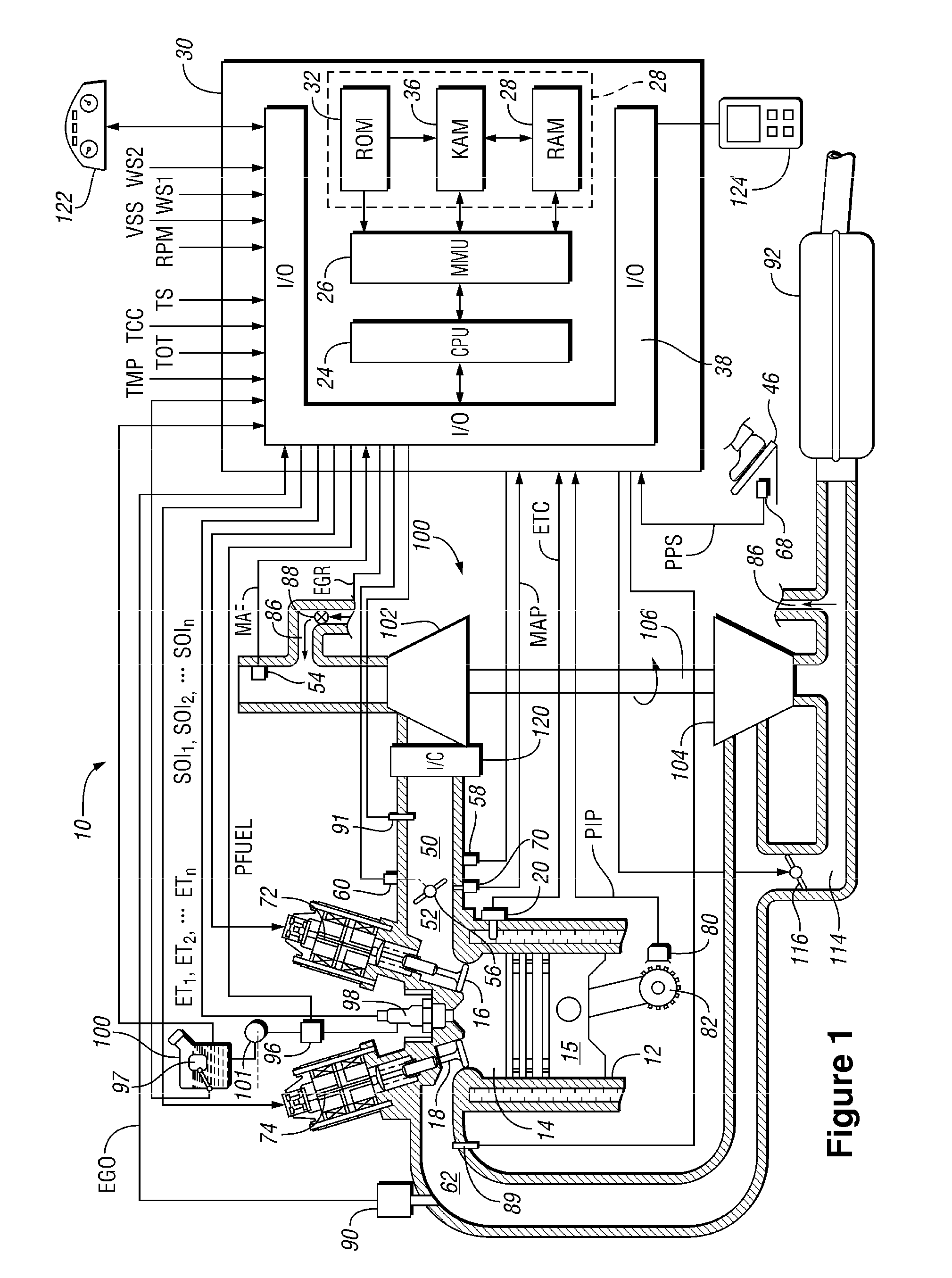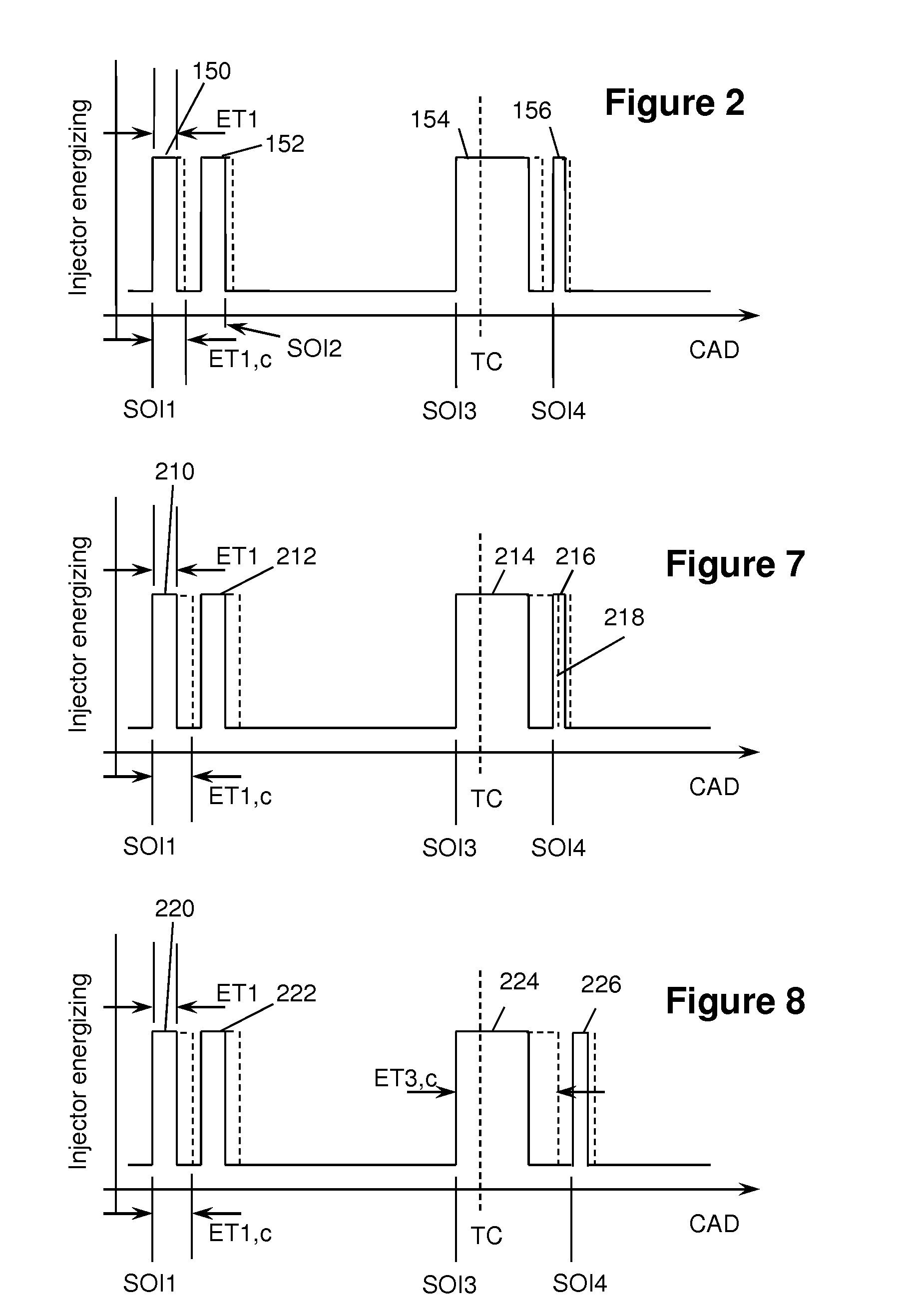Compensation for oxygenated fuels in a diesel engine
a technology of oxygenated fuel and diesel engine, which is applied in the direction of gaseous engine fuel, position/direction control, special data processing applications, etc., can solve the problems of increased emissions, increased emissions, and the operator's sense of power loss in the vehicle, so as to improve the accuracy of engine models, improve the fuel economy condition, and improve the effect of fuel economy
- Summary
- Abstract
- Description
- Claims
- Application Information
AI Technical Summary
Benefits of technology
Problems solved by technology
Method used
Image
Examples
Embodiment Construction
[0023]As those of ordinary skill in the art will understand, various features of the embodiments illustrated and described with reference to any one of the Figures may be combined with features illustrated in one or more other Figures to produce alternative embodiments that are not explicitly illustrated or described. The combinations of features illustrated provide representative embodiments for typical applications. However, various combinations and modifications of the features consistent with the teachings of the present disclosure may be desired for particular applications or implementations. The representative embodiments used in the illustrations relate generally to turbocharged four-stroke, multi-cylinder internal combustion engines. Those of ordinary skill in the art may recognize similar applications or implementations with other engine / vehicle technologies with various types of valvetrains and valve activation strategies that may include mechanical, electromechanical, and...
PUM
 Login to View More
Login to View More Abstract
Description
Claims
Application Information
 Login to View More
Login to View More - R&D
- Intellectual Property
- Life Sciences
- Materials
- Tech Scout
- Unparalleled Data Quality
- Higher Quality Content
- 60% Fewer Hallucinations
Browse by: Latest US Patents, China's latest patents, Technical Efficacy Thesaurus, Application Domain, Technology Topic, Popular Technical Reports.
© 2025 PatSnap. All rights reserved.Legal|Privacy policy|Modern Slavery Act Transparency Statement|Sitemap|About US| Contact US: help@patsnap.com



